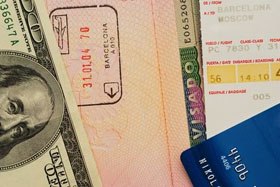 For any foreign national who gets arrested, the criminal justice system in any country can be a painful experience, whether the person is dealing with Denver Bail Bonds or bonds in another location. As a foreign national, there could be cultural and language barriers and other issues that slow down the process of posting bail, even when Immigration Bail Bonds in Denver are involved.
For any foreign national who gets arrested, the criminal justice system in any country can be a painful experience, whether the person is dealing with Denver Bail Bonds or bonds in another location. As a foreign national, there could be cultural and language barriers and other issues that slow down the process of posting bail, even when Immigration Bail Bonds in Denver are involved.
What are Immigration Bail Bonds?
Immigration bail bonds are like other kinds of bail bonds in that they ensure that a person accused of a crime shows up in court as scheduled, except that they are posted to the Immigration and Naturalization Service instead of a regular holding facility like the Denver City jail. But regardless of the accused person’s nationality, standard bail considerations like the nature of the crime and the arrest record of the defendant apply when the court is assessing the risk of flight. Like other kinds of bonds, immigration bonds are immediately forfeited if the defendant doesn’t appear in court as scheduled.
Information that is Needed before calling a Bondsman
- Name, Alien Registration Number, home address, country of birth, and date of birth.
- Name of the jail or other facility where the defendant is being held, such as the Denver County jail.
- The full bond amount
- The name, valid address, Social Security Number, and the telephone number of the person posting the bond for the defendant.
- Acceptable forms of identification such as: a Permanent Resident Card, Passport with appropriate stamps, a valid driver's license, or state identification with proof of immigration status.
Common Bail Bonds Questions
- If I have enough cash on hand to pay for my loved one’s bail, why should I get a bail bond? If you decide to pay for bail, then you’re tying up money that could be used for other pressing needs, so getting a bail bond instead allows you to maintain access to your existing finances. Also, if the defendant has been accused of drug trafficking, you must be able to prove that you received the money came from non-drug sources – in other words, from the defendant himself.
- I’ve heard there are penalties if I skip bail. Is that true? Yes, if you pay the bail yourself but don’t show up in court, then you forfeit whatever money or property you used to bail yourself out of jail. If you’ve used a bail bond agency, that company forfeits the money they used and will likely hire a fugitive recovery agent to track you down and force you to appear before the courts so they don’t lose their money.
- What is a fugitive recovery agent? A fugitive recovery agent, sometimes called a bail recovery agent, is another name for bounty hunter – the sometimes derisive name used for professionals who receive a fee to track down a defendant who has skipped bail and returns that person to the proper authorities.
- Can I get my money back that I used for bail? Maybe. If you post bail money yourself, then you get that money back as long as you make scheduled court appearances as directed by the judge.
Finally, what happens to the money I pay a bail bondsman? Any money you pay a bondsman to secure your release is not returned. That money is a fee the bail agency earns for services rendered on your behalf.
Immigration bonds are another type of surety bond or insurance that allows a foreign national to be released from jail if arrested for a crime.